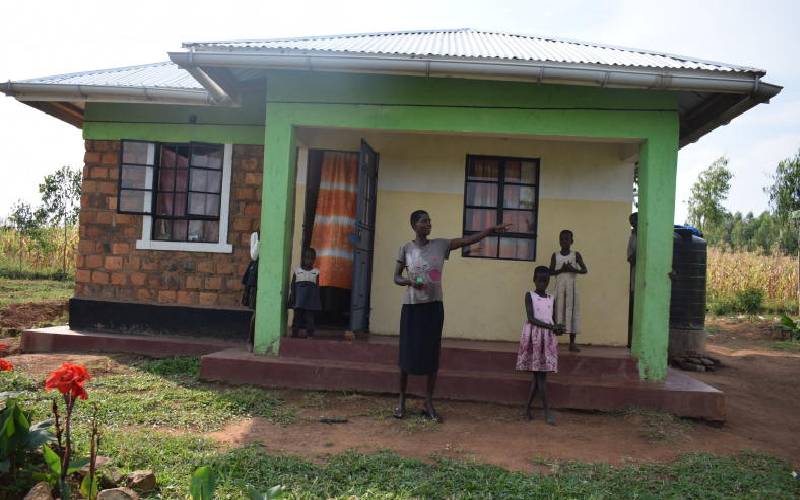×
The Standard e-Paper
Join Thousands Daily

Rose Akinyi, 38, is a happy woman after being salvaged from a shack that was her home for more than 20 years.
The mother of 10 children, who lives at Kobu village in Kotieno location, Rangwe sub-county, has had a tough life, before and after her husband Julius Omollo died in 2013.